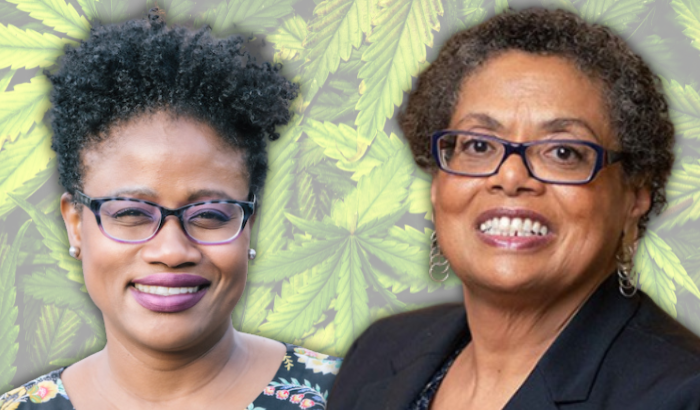
Video: “This Black History Month, NORML recognizes the devastating harms of America’s drug war on Black communities, families, and individuals across the nation.”
In honor of Black History Month, the National Organization for the Reform of Marijuana Laws (NORML) is spotlighting the systemic inequities that continue to challenge the Black community in the battle for a federally legal cannabis landscape. On Thursday, February 22, NORML Board members Imani Dawson and Professor Beverly I. Moran joined NORML Development Director JM Pedini on Live With NORML to discuss the issues facing Black consumers, cannabis industry stakeholders, and those disproportionately impacted by the War on Drugs.
Imani Dawson, Founder and President of the award-winning communications firm TCC Media, and Beverly I. Moran, Professor Emerita of Law and Sociology at Vanderbilt University, are uniquely positioned to give powerful insights on this subject. Both are at the top of their fields, and they bring a wealth of experience in cannabis advocacy and education, being instrumental in local and national evolutions of marijuana policy reform.
Professor Moran, a leading authority on United States tax law, has shaped the governmental approach to the racial impacts of the Internal Revenue Code; the Treasury Department extensively cited her work in its recent report on U.S. tax laws and race. Ms. Dawson has curated communications and content for international, community and governmental organizations and major media outlets, including MTV, BET, VH1, and The Grio. She is also a co-founder and Executive Director of the Cannabis Education Advocacy Symposium and Expo (CEASE). This nonprofit organization educates consumers about the medical and economic benefits of cannabis.
During the livestream, Ms. Dawson and Professor Moran will provided information about NORML’s distinctive value to the Black community as a consumer rights organization and the country’s longest-running cannabis legalization nonprofit with over 50 years of operation. They also explained the historical context and parallels of cannabis prohibition and the legacy of Black culture in the United States, which continue to influence communities of color today, as seen everywhere from state social equity programs to criminal justice policies to the growing national controversies over Diversity, Equity, and Inclusion initiatives.
“This Black History Month, NORML recognizes the devastating harms of America’s drug war on Black communities, families, and individuals across the nation,” Ms. Dawson said. “We resolve to advocate for an inclusive and equitable framework for the federal legalization of cannabis for all. From those directly ensnared in the criminal justice system for consuming cannabis to the family members losing access to loved ones, millions of Black Americans have had their lives upended through marijuana prohibition.”
She continued, “Despite similar usage rates, Black people are nearly four times more likely than their white counterparts to be arrested for marijuana possession. These arrests have helped to fuel mass incarceration and have contributed to millions of African Americans being locked out of voting, higher education, housing, employment, and other opportunities. In NORML’s fight for federal and state legalization, we commit to seeking pathways that can provide social, health, and economic benefits for the cannabis community.”
This article was republished via NORML.
























